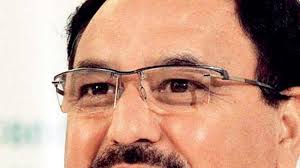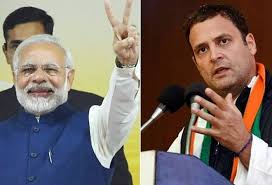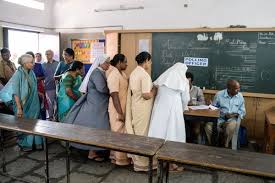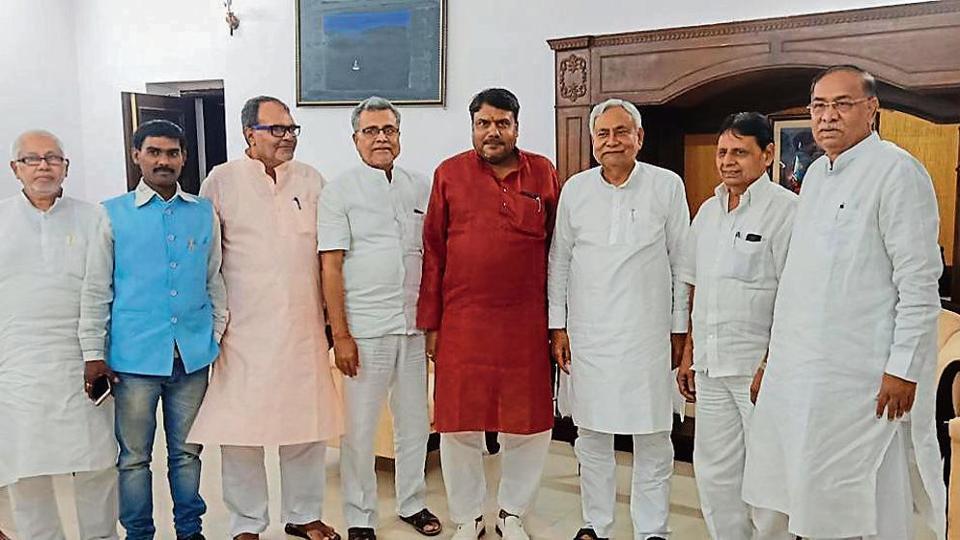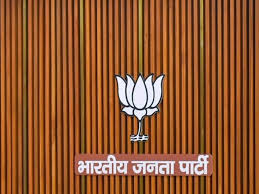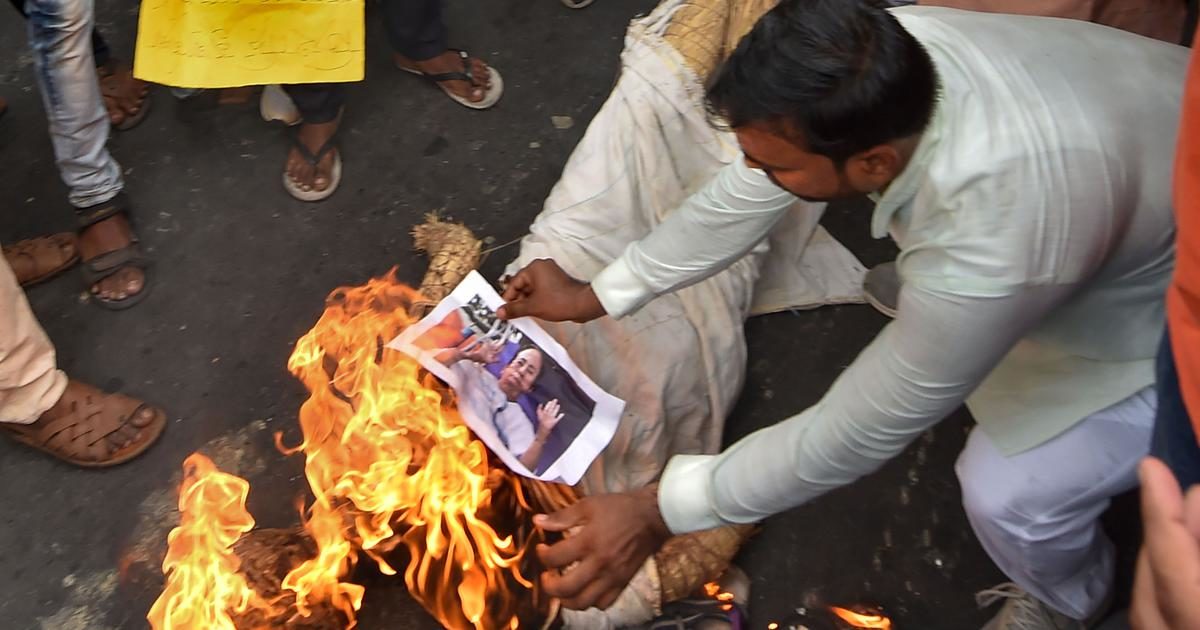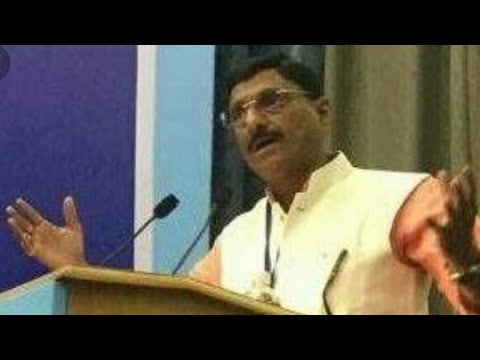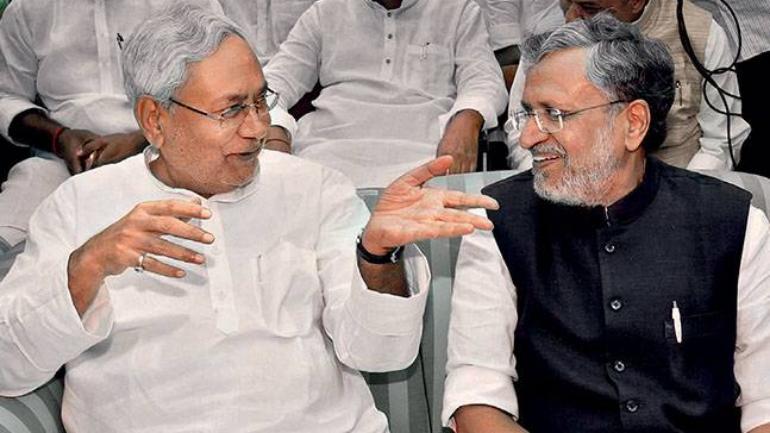Source: .indiatoday.in
A June 4 tweet from Union Minister Giriraj Singh, wherein he
apparently taunted key ally Nitish Kumar for attending iftar events just
“for a show” followed by Sushil Modi’s somewhat ambassadorial defence
of Bihar chief minister has once again highlighted the case of the two
cozy, but somewhat mismatched, allies in Bihar.
Sushil Modi’s BJP
and Nitish Kumar’s Janata Dal-United (JDU) are clearly bound by a common
vision and purpose in Bihar, yet also pushed apart by their political
teammates and their temperaments.
It’s
not for nothing that Giriraj Singh’s tweet has once again brought the
irony behind the electoral friendship of Kumar and Sushil Modi, the
tallest BJP leader in Bihar and one of the strongest supporters of
Nitish-BJP alliance, to the fore. Kumar and Sushil Modi, in their
contemporaneous careers, often symbolise the prisoner’s dilemma that
circumstances had thrust upon them.
The two have somehow seen
through the bitterness and understood that they were better off
collaborating than confronting. But there are spoilers galore. Singh was
clearly one of them.
Fresh from his promotion to the Union
Cabinet in the new Narendra Modi government, the senior BJP leader, for
whom Nitish Kumar had campaigned during the Lok Sabha elections to
ensure his victory, on Tuesday morning tweeted four pictures from three
different iftars, saying: “How beautiful the pictures could have been
had falahaar (fruit feast) been organised with similar fervour during
Navratri. We fall behind in our own rituals and religion but are ahead
in showing off.”
These pictures were from iftar parties organised
by the JD-U, Ram Vilas Paswan’s Lok Janshakti Party (LJP) and Opposition
alliance member Jitan Ram Manjhi’s Hindustani Awam Morcha (Secular)
(HAMS). Since Nitish Kumar was the only leader present in all the four
pictures, the man and the target behind Singh’s tweet was not lost on
anyone.
Not only this, Singh’s tweet was uploaded on the eve of
Eid ul-Fitr and its underlying message seemed to be confronting the
inclusive outreach of Prime Minister Modi and the secular fabric of the
Nitish Kumar-led NDA government in Bihar.
Though there are
suggestions that BJP President Amit Shah has advised Singh against
making such comments, the Union minister has not withdrawn his tweet,
which was still visible till the time of filing this report.
A
section of JD-U leaders, however, refused to accept Giriraj’s tweet as a
coincidence. They see a purpose in the tweet, as Singh’s quip has come
at a time when relations with the BJP have turned frosty after Nitish
Kumar refused to accept a “symbolic representation in the Union
Cabinet.”
The BJP had offered a solitary Cabinet berth to Nitish
Kumar’s JD-U in the Union Cabinet, describing it as a “symbolic
representation.”
The Bihar chief minister, who heads a party of 16
Lok Sabha and six Rajya Sabha MPs, promptly shot down the saffron
proposal on the ground that it should have been proportionate and not
symbolic.
In what seemed like a return riposte, Nitish expanded
his ministry on June 2 by inducting as many as eight JD-U members while
offering just one berth to the BJP, which was not accepted by the
latter. “Giriraj Singh is not alone to have taken potshots at the NDA
alliance in Bihar.
In 2017, when JD-U rejoined NDA, our former
National President Sharad Yadav had defied the decision. While JD-U
quickly showed the door to our former national president, the BJP has
failed to force Giriraj to make amends,” said a senior JD-U leader.
JD-U
chief spokesperson Sanjay Singh has described Giriraj Singh’s tweet as a
clear manifestation of the fact that BJP has no control over such
leaders. “It is time for the BJP to take the comments of Giriraj
seriously and take action,” he said.
They say momentous eras are
appreciated only in retrospect, but in this case, where Nitish Kumar
accepted BJP as an alliance partner, the two have together delivered
magic.
A landmark Lok Sabha election victory in 2019 where the NDA
won 39 of Bihar’s 40 seats looks both unprecedented and unrepeatable.
The combined magic of BJP and JD-U made a spectacular start in 2005 when
the two parties together unseated Lalu Prasad who seemed invincible
then.
Since then, the two parties have prospered and gone from
strength to strength, evolving a relationship that was to be the making
of modern Bihar.
When the BJP and JD-U separated in 2013 and
fought two elections against each other, the BJP won the 2014 Lok Sabha
poll while Nitish Kumar won the 2015 assembly polls. The two once again
came together in 2017 to deliver a watershed result in the 2019 Lok
Sabha election.
Today, however, with Bihar Assembly polls
scheduled in 2020, the two parties, JD-U and BJP, need to unthaw their
relationship to fill up the fissures, which have come up after the BJP
refused to let Nitish have more than one representation in the Union
Cabinet.Giriraj Singh or his tweets can make the process a painful one
for NDA in Bihar.
